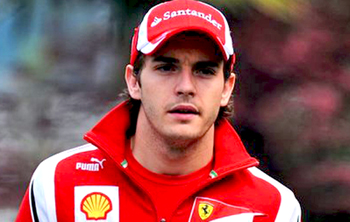Berlin, May 17: Top-flight football in Germany kicked off again on the weekend, becoming the first major sports league in the world to resume play, as parts of Europe took more tentative steps towards normality after the devastation unleashed by the coronavirus pandemic.
With the worldwide death toll past 310,000 and the global economy reeling from the vast damage caused by lockdowns, the reopenings in some of the hardest-hit countries provided much-needed relief from the pandemic.
The French returned to the beach and Italy announced a resumption of European tourism with outbreaks in Europe slowing, but the rising number of fatalities in the United States and Brazil were a grim reminder of the scale of the crisis, with more than 4.6 million infections reported globally.
With governments trying to reopen their economies while avoiding the second wave of infections that could necessitate more lockdowns, Germany's Bundesliga resumed its season on Saturday with games played in vacant, echoing stadiums.
League heavyweights Borussia Dortmund hosted rivals Schalke at the all-but-empty Signal Iduna Park -- which would usually be packed with more than 80,000 raucous fans.
"It's sad that matches are played in empty stadiums, but it's better than nothing," said 45-year-old Borussia Dortmund fan Marco Perz, beer in hand, as he prepared to watch the game on TV.
Dortmund's Erling Braut Haaland became the first player to score a goal after the two-month shutdown and celebrated by dancing alone -- away from his applauding teammates -- in keeping with the strict hygiene guidelines which allowed the league to resume.
The only noise was the cheering and clapping of players and coaches.
League champions Bayern Munich will play Union Berlin in the capital on Sunday, with the resumption in Germany seen as a test case as other top sports competitions try to find ways to resume play without increasing health risks.
"The whole world will be looking at Germany, to see how we get it done," said Bayern boss Hansi Flick.
Prime Minister Giuseppe Conte of Italy, however, said Saturday he needed more guarantees before the government can give the green light for the resumption of its top football league, which is struggling with logistical difficulties as clubs try to arrange training sessions and quarantine facilities.
With the Northern Hemisphere's summer approaching, authorities are moving to help tourism industries salvage something from the wreckage.
Italy, for a long stretch the world's worst-hit country, announced that European Union tourists would be allowed to visit from June 3 and a 14-day mandatory quarantine would be scrapped.
"We're facing a calculated risk in the knowledge that the contagion curve may rise again," Conte said during a televised address.
"We have to accept it otherwise we will never be able to start up again."
In France, the first weekend after the strictest measures were lifted saw many ventures out into the spring sunshine -- and hit the beach.
In the Riviera city of Nice, keen swimmers jumped into the surf at daybreak.
"We were impatient because we swim here all year round," said retiree Gilles, who declined to give his full name.
With the threat of a second wave of infections on their minds, authorities in many countries have asked people not to throng public spaces like beaches as they are made accessible again.
Officials in parts of England on Saturday warned people to stay away from newly reopened beauty spots and avoid overcrowding.
Germany also saw the latest in a growing wave of anti-lockdown protests in many parts of the world, with rallies in major cities bringing together conspiracy theorists, anti-vaccine activists and other extremists.
There were similar protests in France, Switzerland and Poland.
Since emerging in China late last year, the coronavirus has whipped up a catastrophic economic storm, which has left tens of millions unemployed in the United States and many are wondering when a recovery will be possible.
With more than 88,000 deaths and 1.47 million confirmed coronavirus cases, the United States is the worst-hit country on the planet, and the administration of President Donald Trump has faced intense criticism of the way it has handled the crisis.
Former president Barack Obama took a swipe at the response to the pandemic, telling graduates at a virtual commencement ceremony that many leaders today "aren't even pretending to be in charge" -- a remark widely regarded as a rare rebuke of his successor.
Trump is keen to reopen the US economy -- the world's largest -- despite warnings from experts that infections could flare up again if social distancing measures are eased too quickly.
Forty-eight of the 50 US states have now eased lockdown rules to some extent.
Much like Trump and his political allies, Brazil's far-right President Jair Bolsonaro is also keen to end lockdowns, which he claims have unnecessarily damaged the South American nation's economy over a disease he has dismissed as "a little flu".
But the virus has continued its deadly march in Brazil, where the death toll passed 15,000 on Saturday and it became the country with the fourth-largest coronavirus caseload with 230,000 infections.
 Bianchi had been in coma since the accident at Suzuka in October 2014. He passed away at a hospital in Nice, near his parents' home in the south of France.
Bianchi had been in coma since the accident at Suzuka in October 2014. He passed away at a hospital in Nice, near his parents' home in the south of France.




Comments
Add new comment